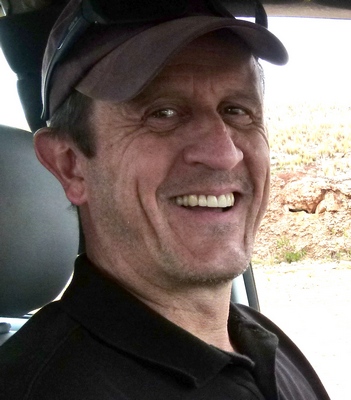1996 World Food Prize Laureate
UC Davis, California USA
One of the greatest advances in the history of agriculture was the development of high-yielding varieties of wheat and rice, which led to doubling of food production in a short period of 30 years and ushered in the «Green Revolution». Renowned Indian agricultural scientist and 1996 World Food Prize laureate Dr Gurdev S Khush is considered one of the fathers of this major development, which prevented famine and land degradation mainly in Southeast Asia, where in the 1960s countries where running out of time because of increasing population density pressure .

|
At IRRI, Dr Khush played a key role in developing more than 300 rice varieties in the race to keep rice production ahead of population growth. One of them, IR36, was released in 1976 to become the most widely planted variety of rice, or of any other food crop, the world has ever known. It was planted on 11 million hectares in Asia in the 1980s, yielding an additional five million tons of rice a year, boosting rice farmers incomes by US$1 billion, and, because of its resistance to pests, saving an estimated $500 million a year in insecticide costs. A more recentlty bred variety, IR72, released in 1990, became the world's highest-yielding rice variety. |
Dr Khush was born in a small village in Punjab and received his education at the Punjab Agricultural University in India, obtaining his PhD from the University of California, Davis, in the USA. After post-doctoral studies on tomato breeding at Davis, Dr Khush joined the International Rice Research Institute (IRRI) in 1967. At IRRI, he became principal plant breeder and head of the Plant Breeding, Genetics, and Biochemistry Division, leading IRRI to the forefront in the improvement of rice varieties. Prior to the beginning of the Green Revolution, varieties of rice took 6-7 months to mature and yielded about 1-2 tons per hectare. Dr Khush modified the plant by reducing its height, shortening maturing time, and increasing response to fertilizers. Under optimal conditions, these new varieties can yield up to 10 tons per hectare.
High-yielding rice varieties with disease and insect resistance and superior grain quality developed under his leadership are grown on 60% of the world's rice land. As a result of wide-scale adoption of these varieties, rice production increased 135% between 1967 and 2000, from 257 million tons to 600 million tons, and most of the major rice growing countries became self-sufficient in food production. Another significant contribution of Dr Khush is the training of numerous rice scientists from all over the world. His contributions to rice genetics and biotechnology are equally well recognised. He has written three books, more than 80 book chapters and 160 research papers.
Dr Khush has worked closely with Indian rice scientists and supplied numerous rice varieties which are grown widely in India. Rice production in India doubled from 45 million tons of milled rice in 1967 to 90 million tons in 2001, and contributed to food self sufficiency and food security.
It is estimated that increased rice production from high-yielding varieties feeds one billion additional rice consumers. The price of rice adjusted for inflation is 40% lower in the domestic and international markets than what it was in the 1960s. This benefits the poor rice consumers who spend 50-60% of their earnings on purchasing food.
Dr Khush has served as consultant to rice breeding programs of 15 countries as well as The Rockefeller Foundation, The Third World Academy of Sciences, Italy, and the International Science Foundation, Sweden. He is now serving as a member of Scientific Advisory Committee (overseas) to the Department of Biotechnology, Government of India.
For his monumental contributions to the World Food Security, Dr Khush has been honoured with numerous awards and honours. Perhaps no other NRI scientist has received as many awards and honours as Dr Khush, among which are the Japan Prize (1987), World Food Prize (1996), the Wolf Prize for Agriculture (2000), and the Golden Sickle Award (2007). Currently, he has returned to California where he continues his work on developing more productive food resources.
Commenting on his life work, Dr Cantrell, Director of the International Rice Research Institute said, While Dr Khush's name may have passed the lips of many, his life's work has passed lips of almost half the humanity. Renowned Indian agricultural scientist and one of the fathers of the Green Revolution Dr MS Swaminathan paid tribute to Dr Khush by saying: 'Dr Khush combines remarkable capacities in both theoretical and practical work, and is a role model for all young scientists.'

